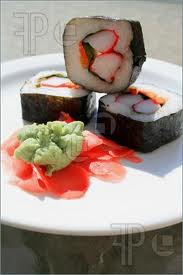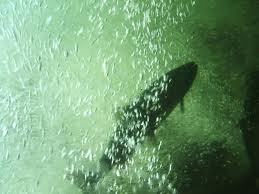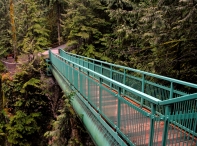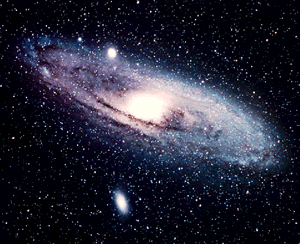I am always telling my writing students that when they write their own stories they have to be prepared to get personal. Why? Because it is where Truth with a capital “T” resides, and because it is often their best work. So, given that, I suppose that I have to practice what I preach. I have a very personal story I want to share. It is humorous in some parts, in some parts a little sad, but mostly it is happy, mysterious, and life affirming. I’ll let you decide if it is also a decent piece of writing, or a good story.
___________________________________________________
My mother died in 2008. At the time, I organized a wake as that is what my mother had always told me she wanted.
“Have a party…” she said, “…and make sure the undertaker doesn’t get my gold teeth.”
Well, one out of two isn’t bad. My mother was cremated and we did have the wake with her ashes present and many stories were told and toasts with Glen Livet were downed. The day after the wake, I had a conversation with my brother about what to do with her ashes. I was reasonably sure that neither of my sisters wanted anything to do with keeping her ashes. My brother suggested that we take a pilgrimage up the Capilano Canyon and put her ashes somewhere there, where she walked, weekly, for most of her adult life.
“Then you can take the beautiful, wood burl chest you bought for her ashes, and put all the photos, cards and letters we received at the wake into it.”
I thought that was a truly great idea. Mom was a true nature lover — hence the unconventional burl chest instead of an urn — and she would have loved this. However, my brother went back to his home far away and life got busy as it usually does.
 Three years later, it is summer, and we were coming up to the anniversary of my mother’s death and birth, as it happens, as the dates were only five days apart, and I have a dream about struggling with a body in a coffin.
Three years later, it is summer, and we were coming up to the anniversary of my mother’s death and birth, as it happens, as the dates were only five days apart, and I have a dream about struggling with a body in a coffin.
I have a dream about struggling with a body in a coffin.
The remains are supposed to be of someone in my family, who, was not clear in the dream. I tell my good friend Karen about it and suggest that I am a little guilty that I have not done what I intended with Mum’s ashes, and maybe this is what the dream is about. I decide my reluctance has been that I know that my aunts and any friends Mom had are too old for the journey up the Canyon, and I am doubtful that my busy sisters are going to have the time or show any enthusiasm for the idea, and my brother is too far away.
But Karen smiles and says, “I’ll go with you!”
And so we make arrangements to go one afternoon to the Capilano Dam and plan to hike down the canyon to where I knew there would be a good spot. I packed the burl chest and the additional plastic sealed container which together held all of Mum’s ashes. I tell Karen I am torn about whether the ashes should go in the river or in the woods by the river. She suggests that since I have two containers, maybe I should do both. Karen always has simple solutions that I have come to depend on. That’s it then, we pack a little picnic for later and we are done.
It is a beautiful late summer afternoon and even going over the Lion’s Gate bridge, I get that nostalgic feeling of returning home. For me, North Vancouver is the land of play, where I was born and raised, often playing in the woods, and riding our bikes up those demanding Grouse Mountain foothills of suburbia to the Cleveland Dam on the Capilano river.
 This is the first symbol I have of returning home or cycle. The second is that I remember that the salmon are running up the Capilano River at this time, returning to spawn. I recall that we are going to walk right past the salmon ladder and will see the salmon going through all their struggles to come home, and pass on their life. We start out on our pilgrimage by walking on the dam and I begin to tell Karen a few of my memories of Mum, almost working backward in time.
This is the first symbol I have of returning home or cycle. The second is that I remember that the salmon are running up the Capilano River at this time, returning to spawn. I recall that we are going to walk right past the salmon ladder and will see the salmon going through all their struggles to come home, and pass on their life. We start out on our pilgrimage by walking on the dam and I begin to tell Karen a few of my memories of Mum, almost working backward in time.
The first memory is at the dam itself, not too long after we discovered my Mother, like her own mother, was a victim of Alzheimer’s. She was still living independently at the time, but we soon had care workers in for her and had her on the long waiting list for a care home. At this time we would frequently ask my mother questions cautiously and her answers would always be:
“I know that!” and she’d look at us like we were crazy, when in fact we rather suspected the truth was she had no idea what we were talking about. We were all testing the waters at the time, unsure of what she really knew and didn’t know.
We were all testing the waters at the time, unsure of what she really knew and didn’t know.
It was at this time, my two sisters and I decided to take her up to Capilano Dam one day to the picnic area. We had each brought a little something for the picnic including some prepared sushi we had picked up. My sister carefully explained to my mother that this was sushi, and in this dish was soya sauce, and this was wasabi (very hot horse-radish), and this is how you put them together. This was something she would have known before she started telling us stories about raccoons as big as men and laser beams bouncing through her apartment.
 Inevitably she said, “I knew that,” as she grabbed the chopsticks and expertly started picking up the sushi. Okay, we all thought, and relaxed until we looked over moments later and saw the entire blob of green wasabi on the end of her chopsticks rapidly heading into her open mouth. We simultaneously let out a cry of warning and lunged across the picnic blanket to stop the impending mouth-burning culinary disaster in progress. She was rescued just in the nick of time, to her dumb founded looks and our relief and laughter.
Inevitably she said, “I knew that,” as she grabbed the chopsticks and expertly started picking up the sushi. Okay, we all thought, and relaxed until we looked over moments later and saw the entire blob of green wasabi on the end of her chopsticks rapidly heading into her open mouth. We simultaneously let out a cry of warning and lunged across the picnic blanket to stop the impending mouth-burning culinary disaster in progress. She was rescued just in the nick of time, to her dumb founded looks and our relief and laughter.
“My mother really did not suffer fools easily and was quite brilliant,” I told Karen.
We often didn’t need to look things up in a dictionary or encyclopedia because we would just ask Mum and she knew it. Sometimes I would try to stump her.
“Mum, what can you tell me about the Byzantine empire?”
She’d launch into everything she knew about it, which was as much as the encyclopedia and a damn sight faster. She was like our own personal internet long before the internet was around. She always knew a little or a lot about everything. Not your typical Skippy peanut butter Mom. She was, in fact, the quiet, book-worm brains behind many a local left-leaning politician in the area.
I would see them come over to the house all through my teen years and pick my introverted yet brilliant mother’s brains about all the political issues on the table. She gave them the best arguments to thwart their opponents and all the nitty-gritty details of any issue they were a little foggy on. They thanked her kindly and forgot her promptly. My mother was just happy to serve.
 By the time I tell these stories to Karen we have reached the fish ladder and we watch the salmon make their remarkable leaps and I am moved. I don’t think I have been to the salmon ladder since my teenage years. I have a flashback of going there on a school field trip. Young, giggling and full of fun. The struggle of the salmon meant little to us then, happy to get a reprieve from sitting indoors, but now I look with older eyes. I see in the salmon’s struggle to advance up the ladder as a parallel to our own human struggles to advance in this mysterious thing called life.
By the time I tell these stories to Karen we have reached the fish ladder and we watch the salmon make their remarkable leaps and I am moved. I don’t think I have been to the salmon ladder since my teenage years. I have a flashback of going there on a school field trip. Young, giggling and full of fun. The struggle of the salmon meant little to us then, happy to get a reprieve from sitting indoors, but now I look with older eyes. I see in the salmon’s struggle to advance up the ladder as a parallel to our own human struggles to advance in this mysterious thing called life.
My mother was timid in life. The opposite of ambition. I once asked my father about my mother’s introversion and why she was so timid. He admitted that he suspected that there had been some damage done to her in her early life.
“I never found out what it was,” he said somberly.
Our real struggles are often hidden I think, and yet my mother had carefully set her adult life up for safety and security with as little struggle as possible. She spectated at the folly of human politics, safely behind the scenes. And as much as she knew about art, culture, and western civilization, she remained an armchair traveller, vacationing safely in books, never to walk the piazza’s of Italy or the rues of Paris. Instead, she walked in nature with true reverence, but always keeping to the walking path. Of course, as much as one thinks they have protected themselves, life seems to defy absolute ease. Her divorce took her by surprise more than it did her children. Yet, even that went as easily as any divorce I have ever heard of.
Initially, one could say I emulated her in trying to set up a safe life, but it was not in my ultimate nature. By the time I was in my later twenties, I quickly started to question all and everything, and explore it in art, humour and writing. I even swam away from that for a time, but I returned to it just like the salmon are compelled to return to their nature.
 After the salmon hatchery, I take Karen across the first bridge across the Capilano river. It is beautiful and peaceful. Golden afternoon sun hitting moss caked rocks over deep pools of water. We can peer down into the liquid and see the shapes of the salmon hovering there, perhaps resting for the next leg of their journey. My mind is set on a place for her ashes that I remember a little further on from the first bridge and before a second one. I realize I am happy and light of heart and start to remember how my mother had this quirky sense of humour that always came out of left field. It is always twice as funny when the unexpected introvert lets fly some funny remark and takes everyone unawares. I have this recollection of her giving us this hilarious imitation of an answering machine experience she had. I was just thinking I should have told Karen what a good sense of humour my Mum had when I see the place that I had in mind. Mossy, soft peat, and even some wild flowers, it looks exactly as I remembered it, even decades later, giving me again this sense of return and eternalness. I let Karen know that this was it.
After the salmon hatchery, I take Karen across the first bridge across the Capilano river. It is beautiful and peaceful. Golden afternoon sun hitting moss caked rocks over deep pools of water. We can peer down into the liquid and see the shapes of the salmon hovering there, perhaps resting for the next leg of their journey. My mind is set on a place for her ashes that I remember a little further on from the first bridge and before a second one. I realize I am happy and light of heart and start to remember how my mother had this quirky sense of humour that always came out of left field. It is always twice as funny when the unexpected introvert lets fly some funny remark and takes everyone unawares. I have this recollection of her giving us this hilarious imitation of an answering machine experience she had. I was just thinking I should have told Karen what a good sense of humour my Mum had when I see the place that I had in mind. Mossy, soft peat, and even some wild flowers, it looks exactly as I remembered it, even decades later, giving me again this sense of return and eternalness. I let Karen know that this was it.
Karen backs off respectfully and stays on the path to watch from a short distance away as I find a nice spot on the hill overlooking the pools. I kneel down with the burl box and silently start to say my last homage to Mom, whose ashes have been living in my apartment for three years. I pick up the burl chest, open the lid to see the ashes and turn it upside down over the hill. Except… nothing comes out. I start to shake it, first tentatively and then emphatically. Behind me, I hear Karen start to titter. No ashes are coming out.
“Do you not like this place Mum?” I ask aloud, as Karen is now guffawing.
 I realize that the burl chest has been an imperfect receptacle and the ashes have dried out and somewhat solidified in the box. I am now laughing with Karen and using a stick to break up the ashes back to a scattering state.
I realize that the burl chest has been an imperfect receptacle and the ashes have dried out and somewhat solidified in the box. I am now laughing with Karen and using a stick to break up the ashes back to a scattering state.
Let’s try again. This time the ashes do come out of the burl chest, but only some of it goes where intended. The other part rises in the air as a fine, dry cloud. I watch as the cloud rapidly and inevitably drifts toward Karen on the path. I stifle an impulse to quickly say,
“Karen, meet Mom, Mom, meet Karen.”
We laugh it off and brush off the fine Mom dust we have on us. And, Karen says, the perfect thing.
“By any chance did your Mother have a sense of humour?”
 “I was just going to tell you about that,” I say.
“I was just going to tell you about that,” I say.
We walk ahead to the next bridge still giggling and as we approach that bridge Karen comments about the beauty. She has never been this far down the canyon before. The pool that the second bridge is over is much deeper and darker than the other pools, the water looks almost black, and although they might be there, you cannot see any salmon in it at all. We walk to the middle of the bridge and I kneel down to the edge with the plastic container. It’s a clear container, and this time I can see the white-gray ashes are moving easily inside, but just in case the dust comes back up I am careful to reach below the edge of the bridge. I let it go and it careens down to the river, falling in a line. What happens next startles us both.
The white ashes hit the black water but they do not disappear. They swirl into the pond like a huge nebula, and move like they are playing and dancing in the black water, spreading out like a dragon’s tail, and from above making an awe inspiring white design in the black water. They keeping moving too, in a mesmerizing way, giving us a mysterious performance of a life lived. As humourous as our last ash experience, this is as profound, and then some. From Mom dust to Star dust.
 Karen and I are simultaneously making exclamations while this is happening, like,
Karen and I are simultaneously making exclamations while this is happening, like,
“Do you see that!”
“Isn’t that amazing!”
“Look, look at them go! They are beautiful.”
We start to notice that they are not moving downstream in the direction we expected, but instead move back upstream. They are moving exactly toward the side of the river where we had just deposited the first of Mum’s ashes. We are both filled with a wonderful, life affirming feeling as if we have been privy to an unfathomable once-in-a lifetime experience.
Karen and I talk about this for the rest of the hike back. We return to the picnic area where Mum once ate sushi. We share a glass of wine and toast my mother’s final and complete return to the cosmos. Or maybe it is just back to nature.
I will treasure this experience and Karen told me she will as well, as her own mother discusses her “plans” with her daughters for her remains. But as we let go of our parents I know that myself and many others have left no children behind, so what are we passing on? What are we creating?
For myself, I hope that whatever it is, and whatever it looks like, it is from the best of my true nature. I want to believe it is a unique gift to the universe, however humble, and whatever small part it has, or I have, in the mystery of life I am grateful for. I do believe that this life is not final, but a fabric of cycles which are in perpetual renewal. It accepts gifts and and gives them back to whoever is supposed to have them. Call it God, the Universe or Nature, but be grateful you are apart of it. Goodbye Mum. Hello nature. Thanks for the mystery.
Kathrin is looking forward to her retreat in Mexico in February where she will be guiding others in their writing. Please contact her for more information about the retreat and other programs through the Vancouver School of Writing.

